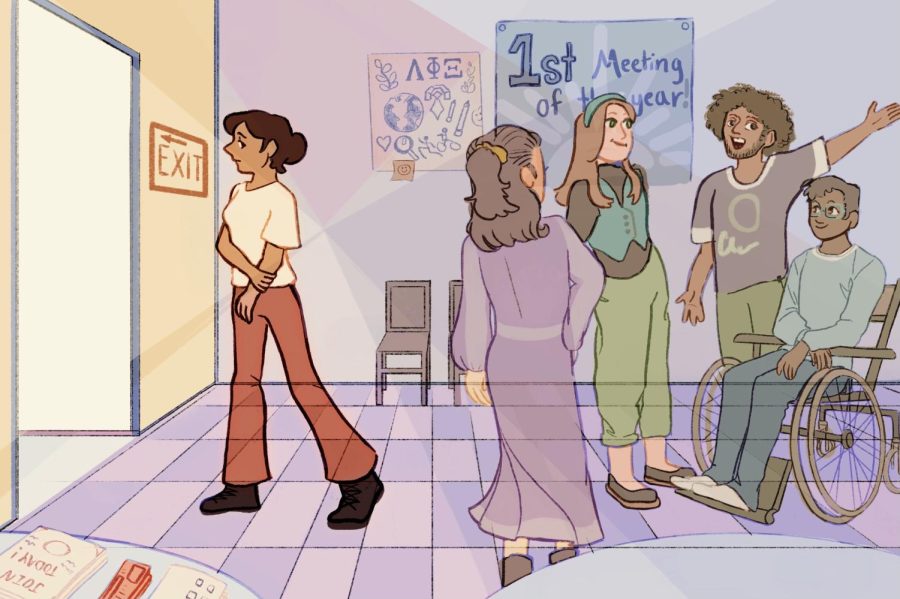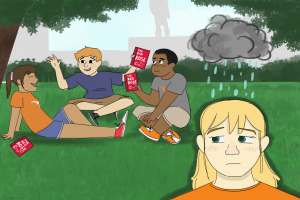There are many organizations in the sea
June 26, 2023
It’s the summer before you start your first year here at UT, and you’re learning all about the Forty Acres at orientation. At several different points, your orientation advisor stops to brag about the 1,000 plus student organizations on campus.
So with that in mind, you walk down Speedway to a sight most UT students are familiar with.
People from dozens of student organizations shout their mottos at passersby, selling baked goods and handing out flyers. Inevitably there will be one or two that catch your eye, and you’ll approach their table to follow their Instagram or figure out the date of their next meeting.
As every organization loves to tell you, by taking initiative and joining an organization you will make lifelong friends and the best of memories, ensuring that you enjoy the rest of your college career. Yay!
But that’s not always the reality of the situation. While some students may find that their dream organization was the first one they joined, others may discover that the first community they participated in was not what they envisioned it to be.
While it’s important to weigh out the pros and cons before becoming a part of an organization, students should reevaluate well after they’ve joined. These student organizations are one way students choose to invest their free time, so it’s vital that what a student gets out of it, whether it be personal growth or career opportunities, matches the work put into it.
“I was just super burnt out,” psychology senior Angela Castellon said about why she left her student organization. “I felt like I wasn’t getting what I wanted out of it.”
In other cases, a student can enjoy how an organization helps personal and career development, but it’s important to remember an organization should not take priority over a student’s mental and physical health. After all, a student organization is meant to serve as an outlet rather than a burden.
“The main reason why I felt like I had to leave, even though I didn’t want to, was because of the time commitment that the organization was pretty much demanding from us,” said Carlos Carroll, a recent government and international relations graduate, in regards to leaving an organization during his college career.
Leaving an organization may come with feelings of guilt, but in the end a student’s job is to prioritize their own well-being above anything else, whether it be personal or academic.
“After I left that org, I was able to spend more time really diving into my studies and actually being able to cook meals for myself,” Carroll said. “I mean, just literally live my life.”
Self-reflection is key when choosing which student organization to spend your time with. You will find the place for you and it’s okay if it takes a week, a month or a year.
Searching for student organizations is an important part of college, but it is not the only way to find a group of friends. So just join an org, drop an org, rinse, repeat, and you’ll be okay.
Bernal is an English junior from Dallas, Texas.
















